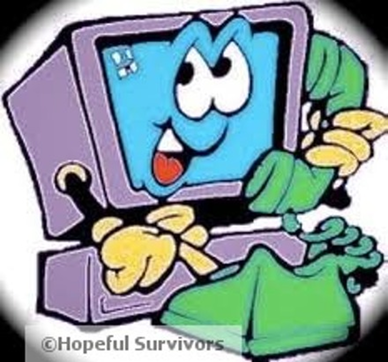
Technology Safety Planning
Tips to discuss if someone you know is in danger
Technology can be very helpful to victims of domestic violence, sexual violence and stalking. However it is important to also consider how technology might be misused.
1. Trust your instincts:
If you suspect the abusive person knows too much it is possible that your phone, computer, email or other activities are being monitored. Abusers and stalkers can act in incredibly persistent and creative ways to maintain power and control.
2. Plan for safety:
Navigating violence, abuse and stalking is very difficult and dangerous. Make sure you talk to a professional trained in Domestic Violence and Safety Planning to help you make a plan for safety.
3. Take precautions if you have a “techy” abuser:
If computers and technology are a profession or hobby for the abuser/stalker trust your instincts. If you think he/she may be monitoring or tracking you talk to a crisis line advocate or the police.
4. Use a safer computer:
If anyone abusive has access to your computer he/she might be monitoring your computer activities. Try to use a safer computer when you look for help, a new place to live, etc. It may be safest to use a computer at a public library, community center or internet cafe.
5. Create a new email account:
If you suspect that anyone abusive can access your email, consider creating an additional email account on a safer computer. Do not create or check this new email from a computer your abuser could access in case it is monitored. Use an anonymous name and account: (example:bluecat@email.com, NOT YourRealName@email.com)Look for free web-based email accounts and do not provide detailed information about yourself.
6. Check your cell phone settings:
If you are using a cell phone provided by the abusive person consider turning it off when not in use. Also, many phones let you “LOCK” the keys so a phone won’t automatically answer a call if it is bumped.
When on check the phone settings; if your phone has an optional location service you may want to switch the location feature off/on via phone settings or by turning your phone on and off.
7. Change passwords and pin numbers:
Some abusers use victim’s email and other accounts to impersonate and cause harm. If anyone abusive knows or could guess your passwords, change them quickly and frequently. Think about any password protected accounts such as online banking, voicemail, etc.
8. Minimize use of cordless phones and baby monitors:
If you don’t want others to overhear your conversations, turn baby monitors off when not in use and use a traditional corded phone for sensitive conversations.
9. Use a new or donated cell phone:
When making or receiving private calls or arranging an escape plan try not to use a shared or family cell phone because cell phone billing records and phone logs might reveal your plans to an abuser. Contact a Crisis Line to learn about donation programs that provide new cell phones and/or prepaid phone cards to victims of abuse and stalking.
10. Ask about your records and data:
Many court systems and government agencies are publishing records to the internet. Ask agencies how they protect or publish your records and request that court, government, post office and others seal or restrict access to your files to protect your safety.
11. Get a private mailbox and don’t give out your real address:
When asked by businesses, doctors and others for your address have a private mailbox address or a safer address to give them. Try to keep your true residential address out of national database.
12. Search your name on the internet:
Major search engines such as “Google” or “Yahoo” may have links to your contact information. Search for your name in quotation marks: “Full Name” Check phone directory pages because unlisted numbers might be listed if you have given the number to anyone.
Please use this for informational purposes only and above all please be careful.
Thank you,
Info Dogg


